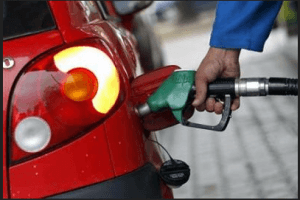Fuel prices drop marginally but CSOs, transport operators question pricing system
 Fuel prices have dropped marginally at the pumps following a continuous decline in global oil prices since last week.
Fuel prices have dropped marginally at the pumps following a continuous decline in global oil prices since last week.
The Ghana News Agency’s monitoring of oil prices at some pumps since December 1, 2021, found that the prices of petrol and diesel have dropped from 6.9 per litre to an average 6.80 per litre – representing about 1.4 per cent reduction, with a few still going some 10 to 15 pesewas down.
Fuel pricing in Ghana is deregulated, meaning prices at the international market have direct impact on prices locally.
Last week, the price of Brent crude fell by $2.87, or 3.9 per cent, to settle at $70.57 a barrel, after hitting an intraday low of $70.22 – the lowest since August.
Some experts have projected a further decline in global oil prices in the coming weeks, with many more countries detecting the Omicron variant of the coronavirus – which the experts say has led to a decline in demand for petroleum products amid increasing supply.
The Institute for Energy Security (IES) had earlier projected that fuel prices would drop between three to five per cent at the local pumps due to a sharp decline (about $10 per barrel) in the price of Brent crude late November.
Meanwhile, some transport operators and analysts have expressed dissatisfaction over the reduction rate at the local pumps, questioning the relevance of the deregulation system.
In an interview with GNA, Mr Duncan Amoah, Executive Secretary, Chamber of Petroleum Consumers (COPEC) said it was unfortunate that some Oil Marketing Companies (OMCs) had still not reduced their prices, adding that the price liberalisation system had made consumers “worse-off.”
“Deregulation is clearly not working as it should in Ghana. If you take a look at when we introduced price liberalisation in July 2016, the only thing that has been achieved is government taking its hands of announcing fuel prices.
“But on the contrary, the people have been left worse-off. Total incidents of taxes on fuel prices at the start of price liberation were just 82p, but as we speak today, we’ve crossed 2.60p,” he said.
He said the drop in global oil prices was not commiserating with decline in prices locally due to the depreciation of the cedi and the taxes imposed on petroleum products.
“We should find a working solution that delinks the cedi’s performance on the local market to our petroleum pricing.
“Looking at our importation estimates, if the Bank of Ghana could guarantee some dollar for suppliers, it will simply mean that those importers or the BDCs will not need to do what we call the forward rate, which eventually affects their pricing,” he said.
Mr Fritz Moses, a Research Analyst at the IES, said the Institute was anticipating many more OMCs, which were yet to change their prices to do so to reflect the global trend.
He projected that the decline in prices would remain same till the end of the second half of the year when prices would be reviewed based on the happenings on the international market and the strength of the local currency against the US dollar.
“With current oil price situation on the international market where we see Brent drop below $70 per barrel, it will be safe to project that prices of fuel at the pump in Ghana may reduce further before the year ends.
“But consumers and traders alike should expect a market correction, where prices will rise beyond $80 per barrel within the first half of 2022,” he said.
In another interview, the General Secretary of the Ghana Private Road Transport Union (GPRTU), Mr Godfred Abulbire Adogma, also expressed dissatisfaction about the reduction rate.
He said the GPRTU maintained its position that the government should scrap some taxes on petroleum products, including the Energy Sector Levy, and the Energy Debt Recovery Levy to ease the burden on consumers.
“If the taxes are removed, whether the prices of petroleum products on the international market are high or low, the prices will be stable locally,” he said.
Currently, there are 12 different taxes and levies on petroleum products.
An assessment of the current price build-up indicates that for every litre of petrol now sold at ¢6.80, there is a tax component of about ¢2.70, constituting about 40 per cent of the total price build-up.
The taxes and levies include Energy Debt Recovery Levy, 49p; Road Fund Levy, 48p, Energy Fund Levy, 1p, Price Stabilisation and Recovery Levy 14p; Sanitation and Pollution Levy, 10p; Energy Sector Recovery Levy, 20p; Special Petroleum Tax, 46p, and Primary Distribution Margin, 11p.
The rest are: BOST Margin, 9p; Fuel Marking Margin, 5p; Marketers’ Margin 46p, and Dealers (Retailers/Operators) Margin, 30p.
Source: GNA
